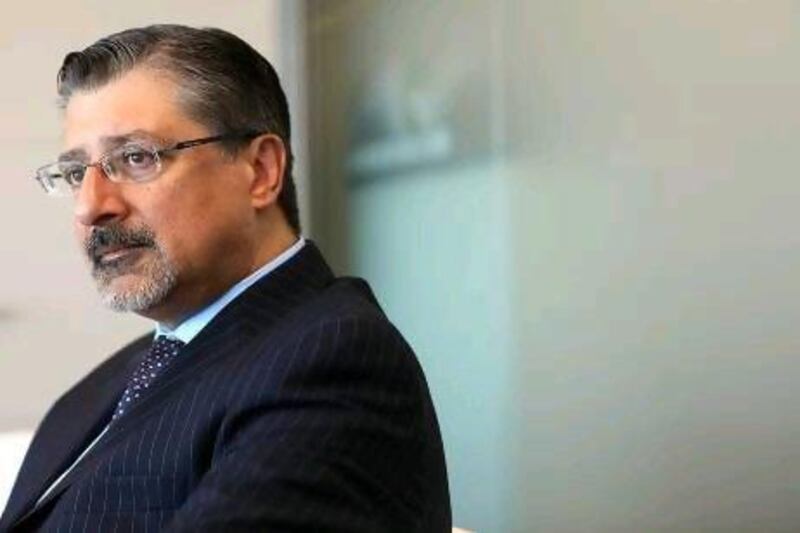Development of alternative energy resources will be driven by private sector investment, said the head of the International Renewable Energy Agency (Irena), the intergovernmental body headquartered in Abu Dhabi.
Projects will increasingly be funded through public private partnerships (PPPs), a model deployed in the UAE's nascent clean energy sector, said Adnan Amin, Irena's director general.
"The rationale for growth is not going to be public investment; it's not going to be huge government institutions that are going to establish projects. That time is past," he said. "We all realise that the growth of the future is going to come through private investment."
In PPPs, private companies front investment costs for a stake in the project and a steady, long-term return from the sale of the electricity.
After investments worth US$256 billion (Dh940.2bn) last year, the alternative energy sector is now a trillion dollar industry, and renewables were the biggest addition to the global energy mix last year.
Industry growth in this year is likely to be less, said Mr Amin, as government funding has tailed off due to a troubled world economy.
Irena will work with governments to adopt a regulatory framework that attracts private money.
"A lot of investors will start to run if they don't have clarity where their investments are going to be in five years' time," said Mr Amin.
Central to a framework is the tariff that the owners of power plants receive for their output. In many countries, this is determined by a "feed-in tariff" that guarantees a rate above the one paid for conventional electricity.
Abu Dhabi, which has set a target of generating 7 per cent of its energy from renewable sources by 2020, adopted a PPP model for its first large-scale solar array the 100 megawatts Shams plant that will come online soon.
Experts believe that a feed-in tariff for large projects is unlikely, but could be deployed to encourage property owners to feed electricity from rooftop solar panels into the grid.
Irena says it will help the UAE government to set up the necessary policies and structures needed for its green plans.
"We believe that it would be useful at this stage to take an independent look at how the institutional structure is following up on this. We will be engaging with the authorities in the coming year," said Mr Amin.
The agency is also engaging with the private sector, and yesterday hosted representatives from 15 of the largest global clean energy companies. Among them is Desertec the private sector initiative to develop North Africa into a major producer of renewable energy.
The initial concept, which focused on exports to Europe, was problematic, explained Mr Amin,and Desertec now places more emphasis on supplying domestic markets. "The more realistic version of Desertec now also includes support for the countries in the Middle East and North Africa to actually develop their renewable sources and support their own energy mix with renewables," said Mr Amin.
The agency recently hired as deputy director general Frank Wouters, the former head of power at Masdar, the Mubadala clean energy subsidiary tasked with implementing Abu Dhabi's renewables targets.
His background in the private sector will help the agency to cooperate with clean energy companies, said Mr Wouters.
Irena, established in 2009 in Bonn, Germany, with a mandate to help coordinate the global push towards green energy, set up its headquarters in Abu Dhabi in 2010 after intense lobbying by the emirate.
It is the first intergovernmental organisation to be established in several decades, and counts 100 states as well as the European Union as members.





